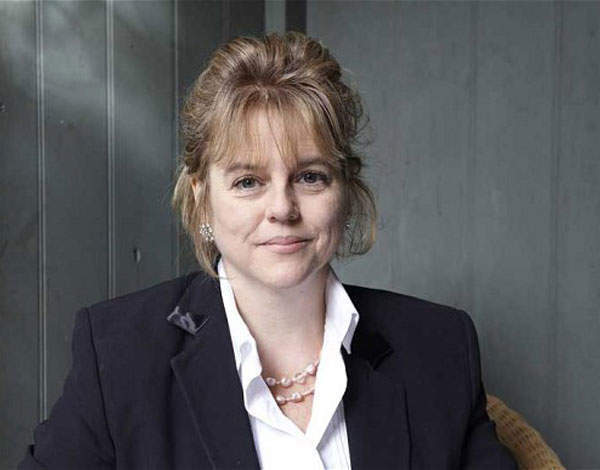

OVER THE RAINBOW
For the past few months, whenever anyone has asked me the subject of my memoir Black Rainbow, I’ve tended to answer that it’s about the consoling power of poetry. It is. I’ve included the 40 poems which gave me solace when unwell. But it is also a personal account of a seventeen-year journey through depression, and two ‘depressive episodes’ in particular — breakdowns might be better descriptions. The first time I was bed-ridden for months; the second for nearly a year.
When I say this, the reaction is no longer one of polite interest. In most cases, it is as if I had given others licence to remove their own masks. Friends, colleagues, cousins, parents at the school gate: they confide that they too suffer from high levels of anxiety and depression, and they too find it difficult to open up.
Their relief to find a fellow sufferer is palpable. For all the steps that have been taken to reduce the stigma of mental ill-health, my experience is that sufferers find it hard to admit to it. If you are successful by conventional standards (I was a Times journalist, my husband a Goldman Sachs junior banker), you might find it even more difficult.
You might be met with what has become a cliché of mental health misconception: the old ‘you’ve got nothing to be depressed about’. Equally, you may find yourself guiltily asking, ‘What have I got to be depressed about?’ or feeling guilty for not making the most of a lifestyle that many others would gladly trade theirs for.
But a supposedly busy or glamorous lifestyle is no defence against falling ill: depression makes no allowance for the thread count of your sheets.
Sufferers are not defined by class or status. Indeed, counterintuitively, an underlying predisposition to depression may be exacerbated by the stress and relentless hard work it can take to be supposedly successful. In my case, my own over-sensitive nature combined with an attempt to be a career girl, a mother and a supportive wife led to a debilitating sense of being overwhelmed, and to illness.
My book’s publication means that I will henceforth be completely open about my own battles with mental illness. I can’t pretend I’m not nervous. There have been plenty of comments from well-meaning friends who have asked whether I am sure I really want to ‘go out there with all this stuff’.
But I’m also excited. I wrote the book for two main reasons. The first is I wanted to write about the physical pain of depression which I feel is still poorly understood. The second is that I wanted to share how poetry helped me recover: words are free and have no side-effects. Where depression isolates us in our own minds, poetry reminds us of our common humanity. In different ways, I hope both aims will help reduce the stigma about suffering poor mental health.
A class of depression
My battle with mental illness began seventeen years ago when I was a working mother and Times journalist. I was married with two children and ambitious and loved my career. I was blessed with a supportive husband who worked at Goldman Sachs and had recently stood for Parliament in the May 1997 election. We were supposedly high-achieving young people. Yet it took just three days from the first niggling anxiety for depression to incapacitate me fully.
When I was diagnosed, I was perplexed: I had thought depression was a case of feeling unhappy and low-spirited, and had absolutely no idea it could be so physically painful. I admit to being duped by stigma at the time — I found it difficult to tell my peer group I was ‘depressed’.
They seemed to be managing high-flying full-time jobs, children and stylish wardrobes. I also felt guilty — depression was for people who had difficult or troubled lives, whereas I counted myself incredibly lucky, as well as very happy.
It took a second major episode six years later, and an ongoing battle with the Black Dog, for me to acknowledge what I had hitherto tried to deny: I do indeed suffer from depression.
I still find it hard to say or write this. But one of the main reasons I can is my realisation that depression is not what I had first wrongly perceived it to be — a sort of disconsolate mood, all in the mind. It is an illness with horrid physical symptoms that can’t be denied.
Doctors now agree that the physical pain of a major depressive episode can be worse than a physical illness. One doctor was quoted as saying in a classic book on depression that if he had to choose between suffering from renal colic, a heart attack and an episode of severe depression, he ‘would prefer to avoid the pain of depression’.
My book was a place where I could finally admit to the truth of a clinical illness. I could explain that having an outwardly high-octane, successful life didn’t stop me getting depressed, but may in fact have been a root cause. And once I got to that stage, then came the realisation that many of my peers I had held up as managing just fine were on antidepressants, too.
If my book helps one other sufferer, I will be happy that I wrote it.
Black Rainbow: How Words Healed Me — My Journey through Depression is published by Hodder & Stoughton (£16.99). Its accompanying app is available from the Apple Store for £1.49. All author proceeds are being given to the charities SANE and United Response
Follow Rachel @rache_Kelly or go to rachelkelly.co.uk






